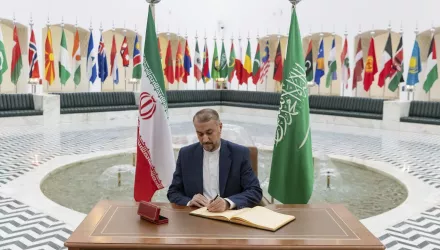Abstract
As a progressively responsible and cooperative partner of the global, nuclear non-proliferation regime, China faces challenges on multiple fronts that have brought judgment, reflection, and debate, domestically as well as internationally, on its non-proliferation policy. Since 1980s, China's historical reservations about, and skepticism and independence of, the global non-proliferation regime have consequently been gradually transitioning to active participation in and even integration with, as well as strong support of, the process. China also envisions nuclear non-proliferation as a broad security concept that encompasses all-around solutions not limited to institutional and technical means. China believes the fundamental purpose of non-proliferation to be to safeguard and promote regional and international peace and security, and advocates a fair, rational, non-discriminatory, and balanced framework for the non-proliferation regime that assures equilibrium between non-proliferation, peaceful uses of nuclear energy, and disarmament. Such positions are consistent with China's policy towards the North Korean and Iranian nuclear issue. Given its increasingly solid position in defending the global non-proliferation regime, progressively active role in reducing regional proliferation tensions, and elevated status in international affairs, China has the potential to play a more constructive role in countering nuclear proliferation both regionally and internationally, through its own example and cooperation with other major powers, and through its efforts to resolve proliferation concerns by promoting and facilitating peaceful dialogues, mutual trust, and give-and-take solutions among conflicting parties.
Wu, Xiaohui (Anne). “La Cina e le Bombe Asiatiche.” Aspenia, 2008




